May 24, 2025 | 16:19 GMT +7
May 24, 2025 | 16:19 GMT +7
Hotline: 0913.378.918
May 24, 2025 | 16:19 GMT +7
Hotline: 0913.378.918
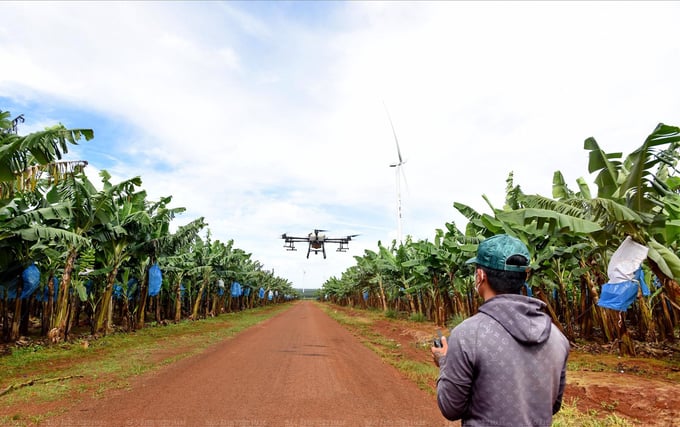
Growing bananas using high technology at Hung Son High-Tech Agriculture Joint Stock Company. Photo: Tuan Anh.
Gia Lai province has prioritized the advancement of high-tech agriculture in recent years. At present, the province has organized 18 high-tech agricultural production zones, which span a total area of more than 3,400 hectares. These zones concentrate on essential products, including avocados, durians, dragon fruits, pepper, coffee, vegetables, flowers, medicinal botanicals, and more. Huong Dat An Phu One Member Co., Ltd., Bau Can Tea Joint Stock Company, and Vinh Hiep Co., Ltd. are among the three enterprises that have gained certification for high-tech agricultural production.
The province of Gia Lai has also attracted 295 investment initiatives in high-tech agricultural production. 133 programs, including 29 agricultural projects, 93 livestock projects, and 11 forestry projects, have received investment policy decisions.
Numerous high-tech agricultural initiatives have commenced operations to date, yielding substantial outcomes. For instance, the Hung Son High-Tech Agriculture Joint Stock Company has implemented high-tech techniques to establish a banana plantation that spans more than 400 hectares in the Dak Doa district. A number of markets, including China, South Korea, Japan, and Kuwait, are presently receiving the company's bananas directly.
Mr. Le Hoang Linh, Director of the banana farm at Hung Son High-Tech Agriculture Joint Stock Company, disclosed that the entire 400-hectare banana area is equipped with automated drip irrigation technology. Furthermore, a pulley and cable system automates the harvesting process. It is important to note that pest management and crop care are conducted using large-capacity drones, which are capable of autonomously fertilizing and spraying from above with exceptional efficiency.
"Post-harvest products are uniform in quality and meet export standards as a result of the widespread implementation of high-tech methods." Furthermore, Mr. Linh stated that the utilization of technology contributes to the reduction of labor and cost, as well as the enhancement of productivity.
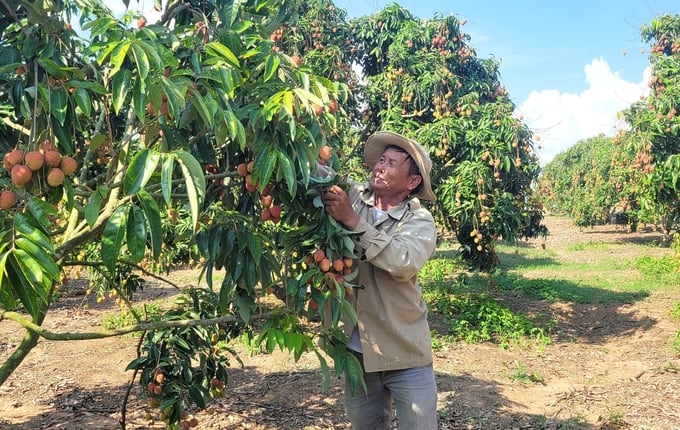
Thousands of hectares of crops in Gia Lai have been grown using high technology. Photo: Tuan Anh.
Chu Pah district has also implemented a high-tech agriculture strategy for the 2021–2025 timeframe in recent years. The district has effectively implemented high-tech production models for vegetables, fruits, and roots that adhere to VietGAP and GlobalGAP standards, spanning an area of approximately 4 hectares. Additionally, they have developed a state-of-the-art produce cultivation model that adheres to VietGAP standards and encompasses approximately 30 hectares. Simultaneously, water-saving irrigation technology has been successfully implemented on a total area of approximately 200 hectares to cultivate critical commodities, including coffee, durians, and a variety of fruit trees.
According to Mr. Nguyen Cong Son, the Head of the Chu Pah district's agriculture and rural development department, the high-tech agriculture plan has generated evident advantages. Currently, the district's high-tech produce and coffee growing areas span thousands of hectares and rely predominantly on water-saving irrigation technology.
"We suggest that the district continue to implement the high-tech agriculture plan in crop production, livestock farming, and forestry in the future. Simultaneously, we will aid in the acquisition of state-of-the-art processing apparatus to further increase the value of agricultural products in the region", said Mr. Son.
Gia Lai province has exported its high-tech agricultural products to numerous countries worldwide. A significant number of countries have imported high-tech coffee, with Europe being the greatest market. The export value of coffee from the province surpassed USD 550 million during the first nine months of 2024. Concurrently, the export value of high-tech crops has exceeded USD 150 million, with exports to markets including the United States, the European Union, Australia, Japan, South Korea, and China.
Gia Lai province has issued a plan for the development of high-tech agriculture in the region in response to the success of high-tech agricultural production. Gia Lai's objective is to establish 33 high-tech agricultural zones and acknowledge 8 to 10 enterprises that have obtained certifications in high-tech agricultural production by 2030.
High-tech agricultural production generates an economic value of approximately 300-500 million VND per hectare, according to the assessment of Gia Lai's agricultural sector. Compared to conventional commodities, the average income per hectare is only approximately 96 million VND.
High-tech livestock husbandry on a large scale has also resulted in significant profits and a decrease in the risk of disease. For instance, in high-tech pig farming, the total investment cost for 1 kg of live swine is 46,000 VND, as opposed to the selling price of 70,000 VND. This results in a profit of 24,000 VND per kg.
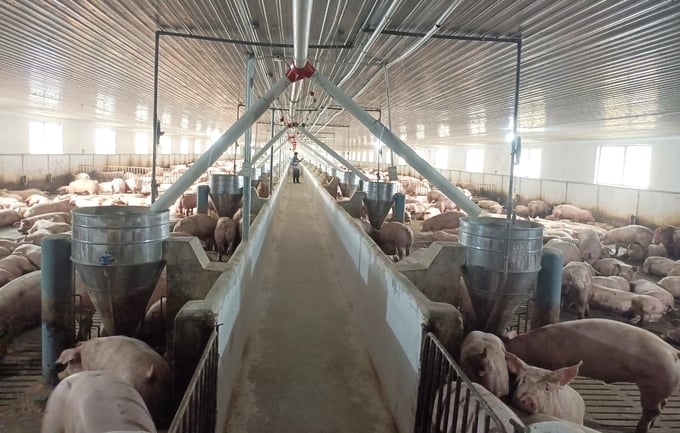
Gia Lai has more and more high-tech pig farms. Photo: Tuan Anh.
High-tech agricultural production has altered the mindset of local people, cooperatives, and enterprises, according to Mr. Doan Ngoc Co, Deputy Director of the Department of Agriculture and Rural Development of Gia Lai province.
They are progressively acquiring the ability to master technology, including the selection of high-quality agriculture materials, the implementation of organic farming practices, the implementation of water-saving irrigation technologies, and the mechanization of production. The province is also increasing production in accordance with established standards, including the construction of planting area codes, packaging facilities, and traceability systems.
"High-tech agricultural production has contributed to the enhancement of the quality of life for the local population." It is important to note that ethnic minority communities have also modified their agricultural practices and have begun to incorporate science and technology into their production. Deputy Director of the Department of Agriculture and Rural Development of Gia Lai province, Mr. Doan Ngoc Co, disclosed that "some members of ethnic minorities have prospered through high-tech agricultural production."
Translated by Linh Linh
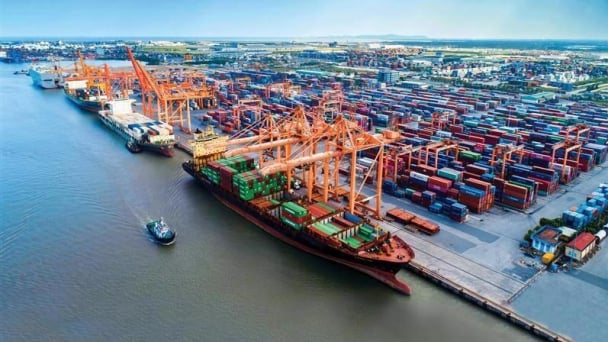
(VAN) South Korea is currently the second-largest investor in Hai Phong in terms of the number of projects (186 projects) and the largest in terms of total registered investment capital, reaching USD 14.2 billion.
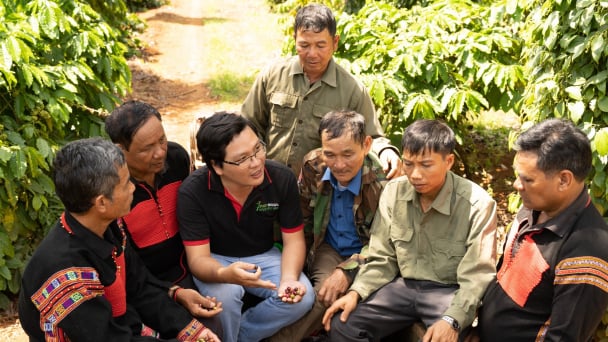
(VAN) As consumers become more environmentally conscious, legal regulations grow increasingly stringent...
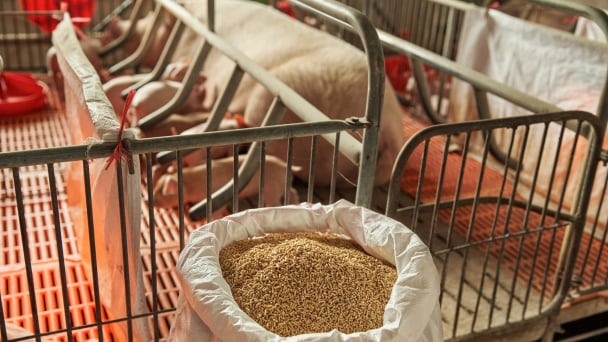
(VAN) CJ Feed&Care officially launched the FCR improvement campaign called “2025 Find Challenge Reach” in April 2025. In Vietnam, this campaign is implemented by CJ Vina Agri.
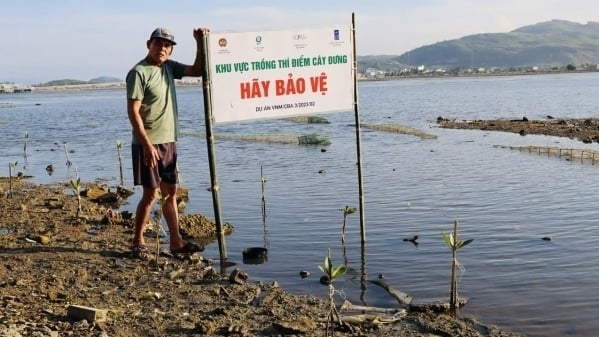
(VAN) The swamp in Pho Thanh is gradually being covered with red mangrove, creating a favorable environment for producing clean, high-quality salt.

(VAN) The trade turnover of agro-forestry-fishery products is growing significantly, along with investment cooperation commitments that are opening up new development directions between Vietnam and Russia.

(VAN) Khanh Hoa is investing over 545 billion VND to develop 240 hectares of high-tech marine aquaculture in order to guarantee a consistent supply of seafood exports and achieve the USD 1 billion target.

(VAN) Minister of Agriculture and Environment Do Duc Duy held a meeting with Soopakij Chearavanont, Chairman of C.P. Group, on May 15.